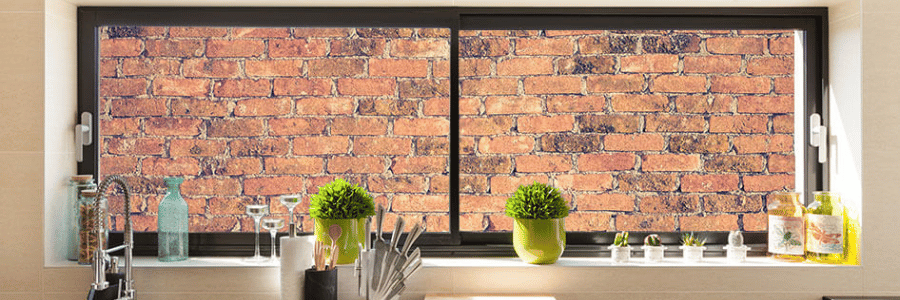When it comes to creating a balanced, harmonious living space, few elements are as influential as your windows. In Feng Shui, the ancient Chinese practice of designing spaces to promote positive energy (chi), windows are considered the “eyes” of your home. They connect you to the outside world, allowing natural light and fresh air to flow in, while also influencing the energy that moves throughout your space. The way your windows are designed, placed, and maintained can have a profound effect on the overall energy of your home and your well-being.
Explore the importance of windows in Feng Shui, share practical tips for maximizing the positive energy in your home, and explain how you can use your windows to invite clarity, prosperity, and peace into your life.

Why Windows Matter in Feng Shui
In Feng Shui, every aspect of your home impacts the flow of chi, or energy. Windows are especially important because they are direct gateways for energy to enter and exit your space. They also allow for natural light, fresh air, and the connection between your indoor and outdoor environments. However, windows that are blocked, broken, or poorly placed can disrupt the flow of energy, creating imbalance or stagnation in your home.
Here’s why windows are so important in Feng Shui:
- They Connect You with Nature: Windows bring the outside world into your home, allowing you to enjoy the beauty of nature, whether it’s a view of a garden, mountains, or the sky. Feng Shui encourages a strong connection to nature to promote calm and vitality.
- They Invite Light and Fresh Air: Natural light is a source of positive, uplifting energy (yang), while fresh air helps keep the chi in your home flowing smoothly. Windows help regulate this balance between light and air, making them key components of any well-balanced Feng Shui design.
- They Influence Clarity and Perspective: Windows are often referred to as the “eyes” of the home. A clear, unobstructed view through your windows symbolizes clarity in your life, while an obstructed or dirty window can signify confusion or blocked opportunities.

Feng Shui Tips for Maximizing Positive Energy with Your Windows
Now that we know how important windows are in Feng Shui, let’s dive into some practical tips for harnessing their power and enhancing the energy flow in your home.
1. Keep Your Windows Clean and Clear
One of the simplest and most powerful Feng Shui practices is keeping your windows clean. Dirty or dusty windows can block the flow of natural light and energy, creating stagnation in your home.
- What to Do: Clean your windows regularly, both inside and outside, to allow fresh light and energy to flow freely. If your windows are blocked by clutter or heavy curtains, clear them away to create an open, welcoming space. In Feng Shui, a clear window symbolizes clarity of thought and opportunities ahead.
2. Repair Any Broken Windows
Broken or damaged windows are considered bad Feng Shui because they allow negative energy (sha chi) to enter your space. A window in disrepair can also symbolize broken opportunities or unresolved issues in your life.
- What to Do: Fix any cracked, chipped, or broken windows promptly. Keeping your windows in good condition is essential for maintaining a harmonious flow of energy in your home. If you’re unable to replace a broken window immediately, consider covering it with a temporary barrier until you can make the necessary repairs.

3. Avoid Windows with Obstructed Views
In Feng Shui, windows symbolize your perspective on life and your ability to move forward. If your windows face a wall, a large tree, or any other obstruction, it can limit your ability to see and access opportunities in life. This kind of blocked energy is thought to create stagnation and frustration.
- What to Do: If possible, ensure that your windows have an open, unobstructed view. If you have windows with a view of a brick wall or alley, consider enhancing the view with potted plants, window boxes, or artwork that creates a sense of openness and beauty. Keep your windows clear of clutter to allow energy to flow freely.

4. Maximize Natural Light
Light is one of the most important sources of positive energy in Feng Shui. Sunlight is considered a powerful yang energy that uplifts and energizes the space. Lack of natural light can result in a home that feels dark, heavy, or stagnant.
- What to Do: Make the most of natural light by ensuring your windows are unobstructed during the day. Remove heavy curtains or blinds that block light, especially in key areas like the living room and kitchen. If you live in a home with limited natural light, consider adding mirrors to reflect light around the room and create a brighter, more expansive atmosphere.

5. Position Your Windows for Optimal Energy Flow
Window placement plays a key role in Feng Shui. The location of your windows can influence the energy flow in a room, and careful positioning can enhance the overall harmony of the space.
- What to Do: In the bedroom, avoid placing the bed directly under a window, as this can lead to disrupted sleep and restless energy. It’s best to position the bed against a solid wall with a clear view of the door, while keeping the window within your line of sight without placing the bed directly beneath it.
In the living room or dining room, aim for windows that allow for abundant natural light but do not overwhelm the space. Ensure that the energy can flow freely through the room, and balance the light with appropriate furniture placement and décor.
6. Balance Yin and Yang with Window Treatments
Feng Shui emphasizes balance between yin (calm, restful energy) and yang (active, vibrant energy). The right window treatments can help regulate the energy in your home, creating a peaceful environment that isn’t too bright or too dark.
- What to Do: Use light, sheer curtains or blinds to allow natural light to filter through while maintaining privacy. In rooms that need a bit more calm, such as the bedroom, consider using heavier curtains or drapes to block excessive light or energy. The goal is to strike a balance between allowing enough light to come in while also providing an atmosphere of restfulness.

7. Use Plants to Enhance the Energy of Your Windows
Plants are an important element in Feng Shui because they represent growth, vitality, and good health. Strategically placing plants near windows can enhance the positive energy in your home by drawing in fresh chi and creating a sense of abundance.
- What to Do: Place plants near windows where they can receive sunlight. Avoid plants with sharp or spiky leaves, as these can create harsh energy (sha chi). Instead, opt for rounded-leafed plants like bamboo, peace lilies, or ferns, which are considered good for promoting a peaceful, balanced atmosphere. Plants also help purify the air and add a touch of nature to your home, further improving the energy flow.

8. Consider the Views Outside Your Windows
The view outside your windows can influence the energy that enters your home. Positive, serene views of nature are ideal, as they promote relaxation, clarity, and tranquility. On the other hand, negative views such as a busy street, construction site, or a cluttered backyard can create distracting or stressful energy.
- What to Do: If possible, choose a location for your windows that offers a view of greenery, water, or open spaces. If your windows overlook an unpleasant scene, consider adding a window treatment or decorative element (like plants or artwork) to redirect the energy and create a more peaceful view.

Final Thoughts: Harnessing the Power of Windows in Feng Shui
In Feng Shui, windows are much more than functional openings; they are vital conduits for energy and light. By carefully considering the placement, condition, and treatment of your windows, you can harness their power to create a space that promotes positive energy, clarity, and abundance in your life.
Whether you’re looking to bring more light into your home, improve the flow of energy, or simply create a peaceful, harmonious environment, your windows play a key role in shaping the energy of your space. By following these Feng Shui tips, you can ensure that your windows are working in harmony with the chi of your home, inviting fresh, vibrant energy and creating a welcoming, balanced atmosphere.


